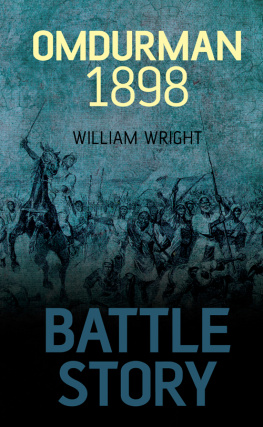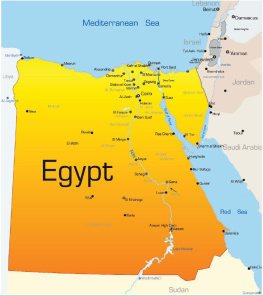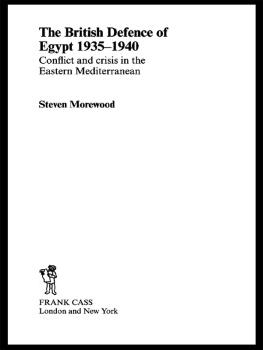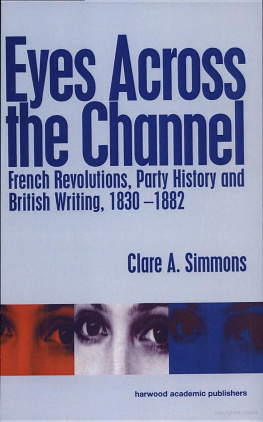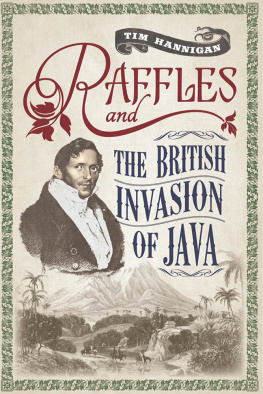William Wright - A Tidy Little War: The British Invasion of Egypt 1882
Here you can read online William Wright - A Tidy Little War: The British Invasion of Egypt 1882 full text of the book (entire story) in english for free. Download pdf and epub, get meaning, cover and reviews about this ebook. year: 2011, publisher: The History Press, genre: Non-fiction. Description of the work, (preface) as well as reviews are available. Best literature library LitArk.com created for fans of good reading and offers a wide selection of genres:
Romance novel
Science fiction
Adventure
Detective
Science
History
Home and family
Prose
Art
Politics
Computer
Non-fiction
Religion
Business
Children
Humor
Choose a favorite category and find really read worthwhile books. Enjoy immersion in the world of imagination, feel the emotions of the characters or learn something new for yourself, make an fascinating discovery.
- Book:A Tidy Little War: The British Invasion of Egypt 1882
- Author:
- Publisher:The History Press
- Genre:
- Year:2011
- Rating:3 / 5
- Favourites:Add to favourites
- Your mark:
- 60
- 1
- 2
- 3
- 4
- 5
A Tidy Little War: The British Invasion of Egypt 1882: summary, description and annotation
We offer to read an annotation, description, summary or preface (depends on what the author of the book "A Tidy Little War: The British Invasion of Egypt 1882" wrote himself). If you haven't found the necessary information about the book — write in the comments, we will try to find it.
A Tidy Little War: The British Invasion of Egypt 1882 — read online for free the complete book (whole text) full work
Below is the text of the book, divided by pages. System saving the place of the last page read, allows you to conveniently read the book "A Tidy Little War: The British Invasion of Egypt 1882" online for free, without having to search again every time where you left off. Put a bookmark, and you can go to the page where you finished reading at any time.
Font size:
Interval:
Bookmark:
A TIDY
LITTLE WAR
A TIDY
LITTLE WAR
THE BRITISH INVASION
OF EGYPT 1882
WILLIAM WRIGHT

For the ladies Gladys who will never read it,
Emma who will and Krisztina who made it happen.
First published 2009
Spellmount
The History Press
The Mill, Brimscombe Port
Stroud, Gloucestershire, GL5 2QG
www.thehistorypress.co.uk
This ebook edition first published in 2011
All rights reserved
William Wright, 2009, 2011
The right of William Wright to be identified as the Author of this work has been asserted in accordance with the Copyrights, Designs and Patents Act 1988.
This ebook is copyright material and must not be copied, reproduced, transferred, distributed, leased, licensed or publicly performed or used in any way except as specifically permitted in writing by the publishers, as allowed under the terms and conditions under which it was purchased or as strictly permitted by applicable copyright law. Any unauthorised distribution or use of this text may be a direct infringement of the authors and publishers rights, and those responsible may be liable in law accordingly.
EPUB ISBN 978 0 752 4 7584 4
MOBI ISBN 978 0 752 4 7583 7
Original typesetting by The History Press
A few minutes before dawn on 13 September 1882 a British army launched itself in a surprise attack on a heavily fortified Egyptian camp at Tel-el-Kebir. The resounding victory won here gave Great Britain control of Egypt for more than seven decades.
This book is the first attempt to tell the story of that war in any detail since the Official History was published in 1887. The author of that work, Colonel John Maurice, called it a military history, with little political or naval background, so it could be argued that this book is the first to give an overview of the whole campaign. I have tried, wherever possible, to use the words of those who were actually involved statesman, sailors and soldiers in an attempt to add flesh to the bones of Maurices pithy and rather dry text.
Why has the Egyptian War been largely ignored while lesser campaigns of the period have been written about in detail? In the past half-century, for instance, there have been at least three full accounts of the short Transvaal War 1881, a fine full-length study of the 2nd Afghan War 187880 and frequent accounts of the Sudan campaigns 188485, while hardly a month seems to go by without another book appearing on the Zulu War 1879.
Events that happen quickly and end successfully, are usually of less interest than those which take longer or seem fraught with difficulties. General Sir Garnet Wolseley, the victor of Tel-el-Kebir, called it his tidiest little campaign, and so it seems at first glance a slick operation that was over in less than two months. A huge admirer of the general and one of his staff officers during the war, Colonel Maurice made sure in his short narrative of barely 100 pages, that his Chief s view of things predominated.
On close examination and after more than a century, the Egyptian War is far more interesting than a cursory glance first tells us. For a start its six battles were no mere walkovers but tough and bloody affairs which on at least three occasions the Egyptians had a fair chance of winning. Twice they caught the British general with his pants down literally! Warfare is often a gamble and Wolseley was a lucky player, yet at Mahsama he almost over-played his hand; in private letters and diaries he was honest to admit that his careful strategy could be compromised at any moment by the enemy and things often did not go to plan. I have tried to show that the background, development and actual campaigning in 1882 was much more complex, fraught with difficulties and minor disasters, and altogether a more near run thing than Wolseleys later bombast, varnished by Maurice, have led us to believe.
The campaign also began with the Royal Navys only battle of any size between the close of the Crimean War and the start of the First World War. The Bombardment of Alexandria by Admiral Seymours fleet was also not so one-sided as it might appear; it was here that the Egyptian gunners first showed their prowess as excellent marksmen and won the respect of their adversaries, while the British actually only effectively destroyed two enemy forts and almost ran out of ammunition.
The campaign was the only major combined services operation in 60 years of the Pax Britannica. The Royal Navy fought a bombardment, conveyed a whole army, helped to seize the Suez Canal in a complex night operation and provided a Naval Brigade which saw service in all the battles on land. Beauchamp Seymour, who got into the thick of things in two of these actions, was a fascinating old salt who sadly left no autobiography and precious little is known about him; by sifting through his papers at the National Maritime Museum I hope he now comes alive for the reader. A better man than I may one day do him the justice he deserves and write a full biography.
Looking at documents in various collections has helped me try and get an idea of what was going on in the minds of Seymour at Alexandria, Northbrook at the Admiralty and various politicians in Whitehall. I especially wanted to discover if some skulduggery or plot was at work to draw Britain into Egypt by the hawks in Gladstones administration. I have tried to show how events developed; other historians have and will continue to view matters differently. My general feeling is that Seymour acted more prudently that I first thought, in fact, prudence was part of the problem after the bombardment when he singularly refused to stop the fires and wanton destruction until he got clear orders to do so. In this sense he must be held partly responsible for the chaos.
Wolseley based his plans on information collected by the Intelligence Departments network of spies. Much has been made of his secret move to Ismailia; I have tried to show how several people were in the know. Nothing went quite the way Sir Garnet first envisaged things and information almost leaked out.
The Egyptian commanders can be accused of being over cautious, of refusing to commit their troops to an attack, since they knew their poorly trained raw recruits might panic and run at any moment. But when the British clashed with regiments like the Egyptian Guards, or the Sudanese, or came into conflict with enemy artillery they had a stiff fight on their hands. Before the 2nd Battle of Kassassin the Egyptians marched into position through the night and almost surprised the British camp. Yet this night march has been completely forgotten while that of Wolseley four days later is celebrated as a rare feat in the annals of warfare. The British war dead were moderately few, but the wounded at Tel-elKebir alone exceeded the combined wounded in all battles of the Zulu War. It was no mere walkover.
This book is primarily a history for English-speaking readers. I am no Arabic scholar and must pay a huge debt to the late German historian, Alexander Scholch, whose fine study of the Arabist Movement, first published in Germany in 1972, with an English edition nine years later, remains the definitive work. Scholch barely touched on the conduct of the war itself and the same is true of the American academic, Juan Cole, who added much to our knowledge of the social structure and philosophy of the nationalists in his 1993 book.
There is a goldmine of biographies and autobiographies by statesman, sailors and soldiers who served in the campaign. These all proved most useful. Fifteen years ago the military writer Donald Featherstone gave us a short but excellent account with superb battle plans in the Osprey campaign series. More recently Spink and Son Ltd published a new compilation of the despatches, casualty figures and awards by Peter Duckers that I found very helpful.
Next pageFont size:
Interval:
Bookmark:
Similar books «A Tidy Little War: The British Invasion of Egypt 1882»
Look at similar books to A Tidy Little War: The British Invasion of Egypt 1882. We have selected literature similar in name and meaning in the hope of providing readers with more options to find new, interesting, not yet read works.
Discussion, reviews of the book A Tidy Little War: The British Invasion of Egypt 1882 and just readers' own opinions. Leave your comments, write what you think about the work, its meaning or the main characters. Specify what exactly you liked and what you didn't like, and why you think so.



